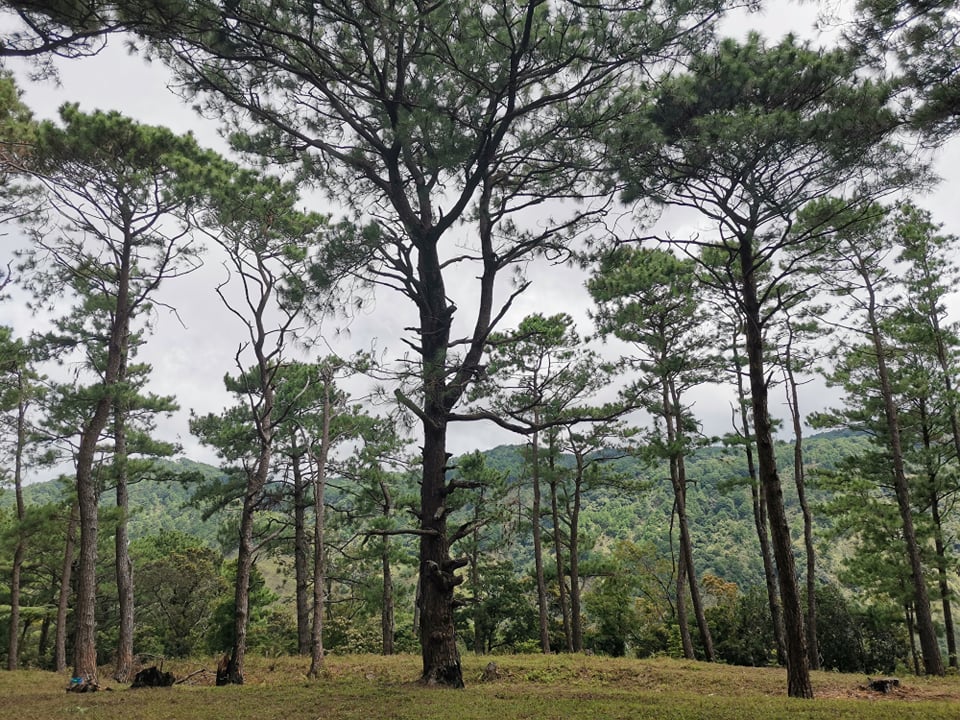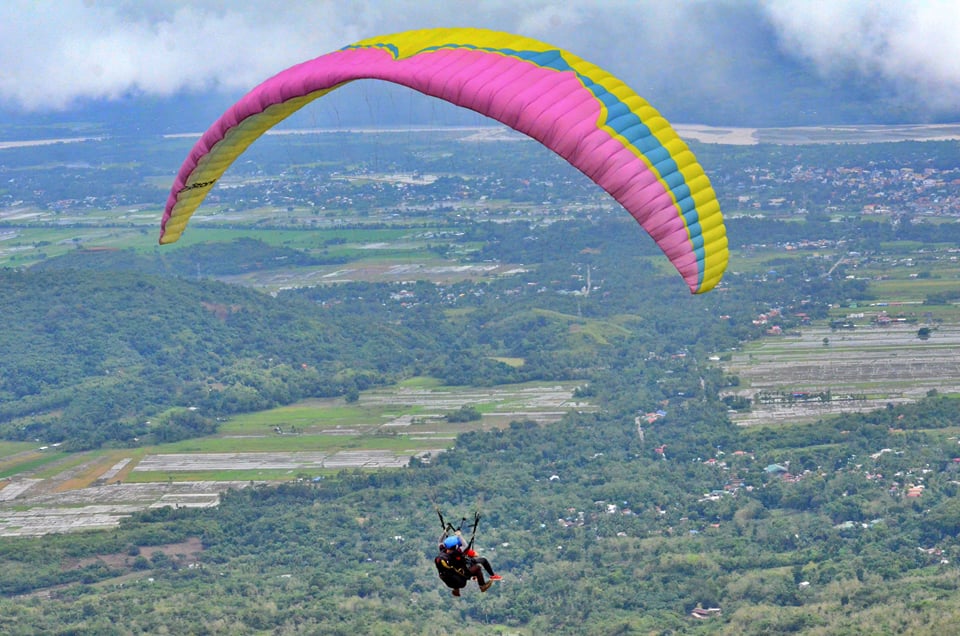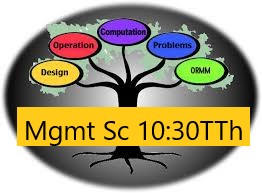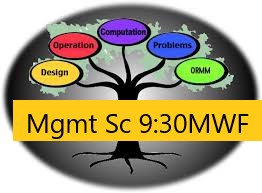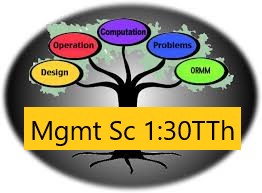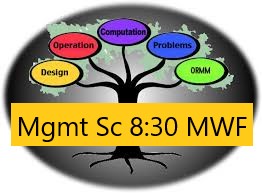Search results: 3380
- Enrolled students: No students enrolled in this course yet
- Teacher: CARINA MALLILLIN
- Enrolled students: 20
- Teacher: ERLINDA ESPAÑO
- Enrolled students: 7
Course Description: THC 1 (Macro Perspective of Tourism and Hospitality)
This course is designed to give a clear and whole overview of Tourism and Hospitality as an ecosystem and goes beyond the usual closed-concept of tourism. It introduces the concepts and terms that are common throughout the different sectors. It also intends to develop, update and maintain local knowledge as well as tourism industry knowledge. It shows the structure and scope of tourism as well as the impact of Tourism as an industry in relation to the world economy and society. It also illustrates the effects of the convergence of tourism with the other local industries and let the students appreciate its multiplier effect in various fronts. It discusses the major factors that influence the history and future of tourism in the world and in the Philippines. It also introduces the sustainable goals of tourism and discusses, among others, how to develop protective environments for children in tourism destinations; to observe and perform risk mitigation activities; etc. The students will also learn to appreciate the key global organizations and the roles they play in influencing and monitoring tourism trends.
(CMO No. 62 Series of 2017, pg. 51)
- Teacher: MAYVELYN COVITA
- Enrolled students: 44
Course Description: THC 1 (Macro Perspective of Tourism and Hospitality)
This course is designed to give a clear and whole overview of Tourism and Hospitality as an ecosystem and goes beyond the usual closed-concept of tourism. It introduces the concepts and terms that are common throughout the different sectors. It also intends to develop, update and maintain local knowledge as well as tourism industry knowledge. It shows the structure and scope of tourism as well as the impact of Tourism as an industry in relation to the world economy and society. It also illustrates the effects of the convergence of tourism with the other local industries and let the students appreciate its multiplier effect in various fronts. It discusses the major factors that influence the history and future of tourism in the world and in the Philippines. It also introduces the sustainable goals of tourism and discusses, among others, how to develop protective environments for children in tourism destinations; to observe and perform risk mitigation activities; etc. The students will also learn to appreciate the key global organizations and the roles they play in influencing and monitoring tourism trends.
(CMO No. 62 Series of 2017, pg. 51)
- Teacher: MAYVELYN COVITA
- Enrolled students: 37
Deskripsiyon ng Kurso
Naipakikita ang kaalaman sa pangkasaysayang pag-unlad ng maikling kuwento at nobelang Filipino na may pagbibigay-diin sa mga sangkap at estruktura pagkabuo nito. Naipakikita ang kaalaman sa paggamit ng mga estratehiya sa pagsasabuhay ng mga akda na lilinang sa kritikal at malikhaing pag-iisip. Kalakip ng mga talakayan ay ang pagsasanay sa pagsulat maikling kuwento at pagsusuri ng mga halimbawa ng maikling kuwento at nobela.
Course Learning Outcomes
Pagkatapos ng kurso, ang mga mag-aaral ay inaasahang:
A. Naipakikita ang kaalaman sa pangkasaysayang pag-unlad ng maikling kuwento at nobelang Filipino na may pagbibigaydiin sa mga sangkap at estruktura pagkabuo nito;
B. Naipakikita ang kakayahan sa pagpili, pagpapaunlad, at paggamit ng mga angkop na estratehiya sa pagtuturo ng maikling kuwento at nobelang Filipino; at
C. Nakasusulat ng maikling kuwento at nakasusuri at nakapagtatanghal ng iba’t ibang anyo ng nobela at maikling kuwento gamit ang malikhaing pag-iisip.
- Teacher: RODELIO GAUUAN
- Enrolled students: 2
Course Description:
This course is designed to acquaint students with the role of the accountant in the management team by providing and assisting in the analysis, interpretation, and forecasting of business organizations. It covers the discussion of the foundation of management accounting; its expanding role, organizational structure, and professional ethics for management accountants; design of management accounting systems (e.g., responsibility accounting system), evaluating the impact of changes in business structure, functions, and appropriateness of management accounting techniques and methods; performance measurement for planning and control such as: marginal, absorption, and opportunity costing; cost behavior; cost-volume-profit relationship; Advanced analysis and appraisal of financial and related information; business planning and budgetary systems; methods for planning and control.
Course Learning Outcomes (General Objectives)
This course is intended to develop strengthen the key competencies of students management accounting with emphasis on strategy development and execution and a deeper consideration of global issues affecting the practice of management accounting. At the end of the semester, the student must be able to:
1. Manifest a thorough understanding of how management accountants affect strategic decisions.
2. Exhibit the ability to be analytical in the decision making process.
3. Discuss and apply the basic concepts of performance measurement compensation and multinational considerations, balanced scorecard and strategic profitability analysis, environmental cost accounting.
4. Show proficiency in the use of computers and other office machines and an opportunity to apply computer skills to management accounting.
5. Exercise professional attitude by being honest, objective, and technically components as well as to be intellectually independent in giving advises and recommendations in rendering management advisory services.
6. Exhibit managerial skills and competence considering social responsibilities at all times.
7. Prepare and analyze accounting data, apply it to a range of planning, control and decision-making situations and adapt it to accommodate change
Course Outline
|
Week No. and Time Allotment |
Topics |
Learning Activities |
Graded activities |
|
Day 1 2 hours |
Orientation on SMU Vision- Mission, Marian virtues and Course Requirements |
Discussion of Classroom policies, teacher and student expectations |
Student to submit reflection paper on their realization from the initial discussion |
|
|
1. Preliminaries |
|
|
|
Day 2 - 6 10 hours |
II. Balanced Scorecard and Advanced Analysis and |
On-Line Lecture with class discussion |
Participation in classroom discussion |
|
|
Appraisal of Performance, financial and related information |
Read Module 1 |
Preparation of strategy maps |
|
|
1. Balanced Scorecard 1.1. Nature of the Balance Scorecard 1.2. Perspectives of the Balanced Scorecard a. Financial b. Customer c. Internal d. Learning & growth 1.3. Aligning the Balanced Scorecard to Strategy 1.4. Features of a Good Balanced Scorecard 1.5. Evaluation of the Success of a Strategy 1.6. Strategic Analysis of Operating Income |
|
Case analysis On-line Quiz |
|
Day 7- 9 6 hours |
I. Performance Measurement, Compensation and Multinational |
On-line lecture with illustrative discussions |
|
|
|
Consideration.
1. Financial and NonFinancial Performance Measures. 2. Choosing among Different Performance Measures a. Return on Investment b. Residual Income c. Economic Value Added d. Return on Sales e. Comparing Performance Measures |
Read Chapter 14 - Lanen |
|
Week No. and Time Allotment |
Topics |
Learning Activities |
Graded activities |
|
|
3. Choosing the time Horizon of the Performance Measure 4. Choosing Alternative Definitions for Performance Measures |
|
|
|
Day 10 |
|
|
First Term Examination |
|
Day 11-15 10 hours |
Choosing Measurement Alternatives for Performance Measures a. Current Cost b. Long-term Assets: Gross or Net Book Value 5. Choosing Target Levels of Performance 6. Choosing the Timing of Feedback 7. Performance Measures in Multinational Companies a. Calculating the Foreign Division’s ROI in the Foreign Currency b. Calculating the Foreign Division’s ROI in Philippine Peso 8. Distinction Between Managers and Organization Units a. The Basic Trade-Off, Creating Incentives Versus Imposing Risk b. Intensity of Incentives and Financial and NonFinancial Measurements c. Benchmarks and Relative Performance Evaluation 9. Performance Measures at the Individual Activity Level a. Performing Multiple Tasks b. Team-Based Compensation |
On Line Lecture with illustrated discussion Alternative measures of performance, management compensation and multinational considerations |
On-Line Quiz Case analysis |
|
Week No. and Time Allotment |
Topics |
Learning Activities |
Graded activities |
|
|
Arrangements 10. Executive Performance Measures and Compensation a. Objectives of Management Compensation b. Executive Performance measure and compensation c. Cash Compensation d. Non-cash Compensation e. Bonus Plans |
|
|
|
Day 16-19 8 hours |
I. Quality and Environmental cost Management 1. Cost of quality 2. Reporting quality costs 3. Controlling quality costs
II. Lean Accounting & productivity Measurement 1. Lean Manufacturing 2. Lean Accounting 3. Productive Efficiency 4. Total Productivity measurement |
On-Line Lecture with illustrated discussion of determining and reporting quality costs |
On line Quiz Case analysis |
|
Day 20 2 hours |
|
|
|
|
Day 21-27 14 hours |
IV. ENVIRONMENTAL COST MANAGEMENT 1. Business process-oriented environmental management and controlling systems 2. Integrated managerial environmental information system for supporting environmental management, controlling and auditing 3. Integration of quality and environmental management, controlling |
On-line Lecture and Group discussion on environment accounting
Case analysis |
Quiz Case Analysis Individual reporting of application of environmental accounting by corporations |
|
Week No. and Time Allotment |
Topics |
Learning Activities |
Graded activities |
|
|
and auditing. 4. Environmental investment management 5. Environmental reporting 6. Environmental ratio systems 7. Managerial evaluation of instruments of environmental policy |
|
|
|
Day 29 & 30 4 hours |
|
|
Final Exams |
- Teacher: Maramba, Veronica C.
- Enrolled students: 1
- Teacher: FELIX MALAQUE
- Enrolled students: 11
- Teacher: MARYLIN PEROLINA
- Enrolled students: 7
COURSE DESCRIPTION
This course offering stems from the global recognition and acceptance of the tourism industry’s contribution to economic development, mutual respect and understanding, and promotion of local culture.
As discussed in undergraduate courses, the tourism industry is composed of different components/ elements / sectors that must work together to provide visitors an experience that is not only recreation in nature but also educational and spiritual.
Basic of these elements are politics, economics and culture. This course deals heavily on the economic elements of tourism with focus on the management of travel and tourism enterprises. However, in the course of the discussions, the elements of politics and culture shall also be discussed.
The course therefore is divided into three major parts, to wit:
· Management of destinations/sites/attractions
· Management of travel and tourism enterprises
· Management of festivals, conventions and other special events.
- Teacher: MAYVELYN COVITA
- Enrolled students: 9
This course offering stems from the global recognition and acceptance of the tourism industry’s contribution to economic development, mutual respect and understanding, and promotion of local culture.
As discussed in undergraduate courses, the tourism industry is composed of different components/ elements / sectors that must work together to provide visitors an experience that is not only recreation in nature but also educational and spiritual.
Basic of these elements are politics, economics and culture. This course deals heavily on the economic elements of tourism with focus on the management of travel and tourism enterprises. However, in the course of the discussions, the elements of politics and culture shall also be discussed.
The course therefore is divided into three major parts, to wit:
- Management of destinations/sites/attractions
- Management of travel and tourism enterprises
- Management of festivals, conventions and other special events
- Teacher: MAYVELYN COVITA
- Enrolled students: 10
This is a course that aims to develop the Masters in Public Administration graduate students the essential knowledge, skills, and behaviors on management planning and control. It provides the students with an analytical framework to enable them to identify and efficiently solve problems in the areas of management planning and control in the public or government sector.
- Teacher: MAYVELYN COVITA
- Enrolled students: 11
Management Planning and Control. Processes and techniques in administrative planning, organizational analysis and control, such as aspects of CPM/PERT, linear programming, operations research.
- Teacher: ERWIN NAVAL
- Enrolled students: 1
This is a course on the use of Management Science in solving management decision problems and is meant to assist students in acquiring a special competence in the scientific management approach to problem solving. It aims to provide students with an awareness of standard tools in Management Science/ Operations Research (MS/ OR), and an appreciation of relevant techniques in mathematical model building, mathematical programming and decision analysis. The course also seeks to develop within the student the ability to recognize potential application areas in their future jobs, as well as the meaningful utilization of the Management Science tools and techniques in the government, the local industry, and in the business, particularly in the areas of finance, marketing, production, and human resource management.
- Teacher: ROWENA RIVERA
- Enrolled students: 27
- Teacher: ROWENA RIVERA
- Enrolled students: 36
This is a course on the use of Management Science in solving management decision problems and is meant to assist students in acquiring a special competence in the scientific management approach to problem solving. It aims to provide students with an awareness of standard tools in Management Science/ Operations Research (MS/ OR), and an appreciation of relevant techniques in mathematical model building, mathematical programming and decision analysis. The course also seeks to develop within the student the ability to recognize potential application areas in their future jobs, as well as the meaningful utilization of the Management Science tools and techniques in the government, the local industry, and in the business, particularly in the areas of finance, marketing, production, and human resource management.
- Teacher: ROWENA RIVERA
- Enrolled students: 50
This is a course on the use of Management Science in solving management decision problems and is meant to assist students in acquiring a special competence in the scientific management approach to problem solving. It aims to provide students with an awareness of standard tools in Management Science/ Operations Research (MS/ OR), and an appreciation of relevant techniques in mathematical model building, mathematical programming and decision analysis. The course also seeks to develop within the student the ability to recognize potential application areas in their future jobs, as well as the meaningful utilization of the Management Science tools and techniques in the government, the local industry, and in the business, particularly in the areas of finance, marketing, production, and human resource management.
- Teacher: ROWENA RIVERA
- Enrolled students: 50
- Enrolled students: No students enrolled in this course yet
(image resource: https://www.google.com/url?sa=i&url=https%3A%2F%2Fwww3.swipeclock.com%2Fblog%2Freduce-nurse-fatigue-and-burnout-with-workforce-management-for-healthcare%2F&psig=AOvVaw2YOtQ9EMzsivUWlwfmumd1&ust=1604737796157000&source=images&cd=vfe&ved=0CAIQjRxqFwoTCJj80KnA7ewCFQAAAAAdAAAAABAT)
- Teacher: Gay Marie Lejao-Cabrera, Ph.D.
- Enrolled students: 4
- Teacher: SHERYLOU BENIG
- Enrolled students: 2

